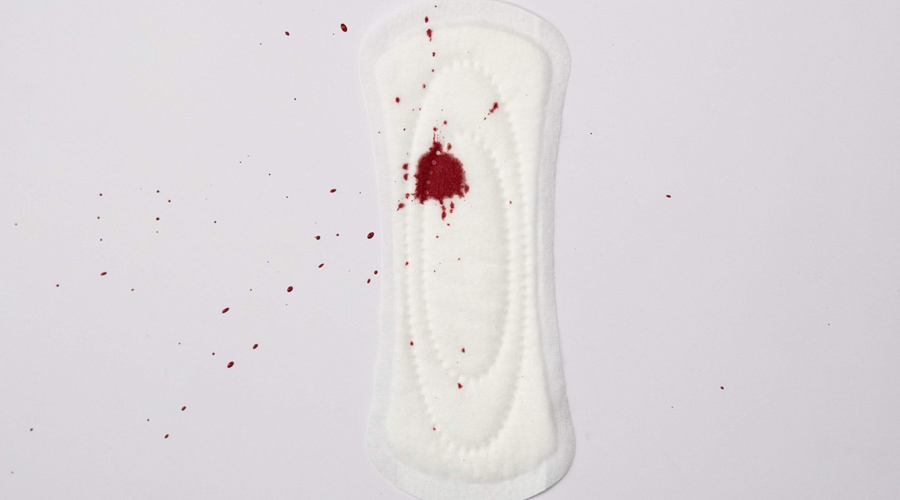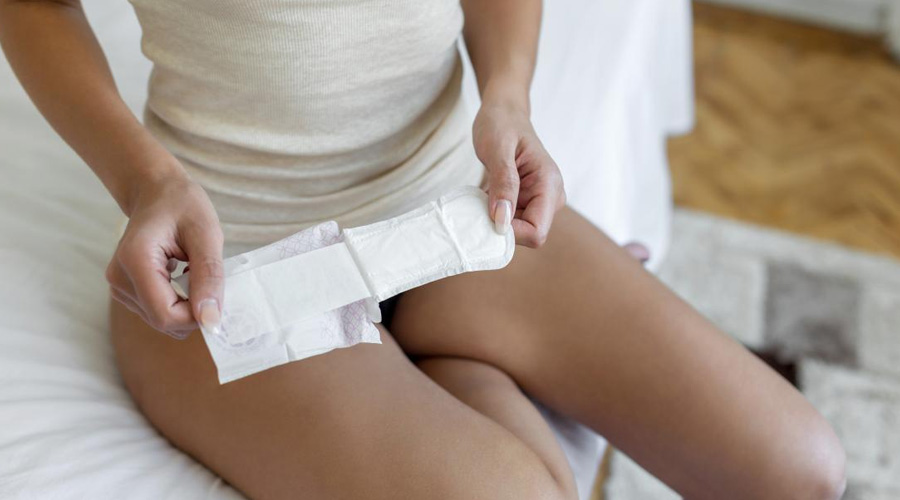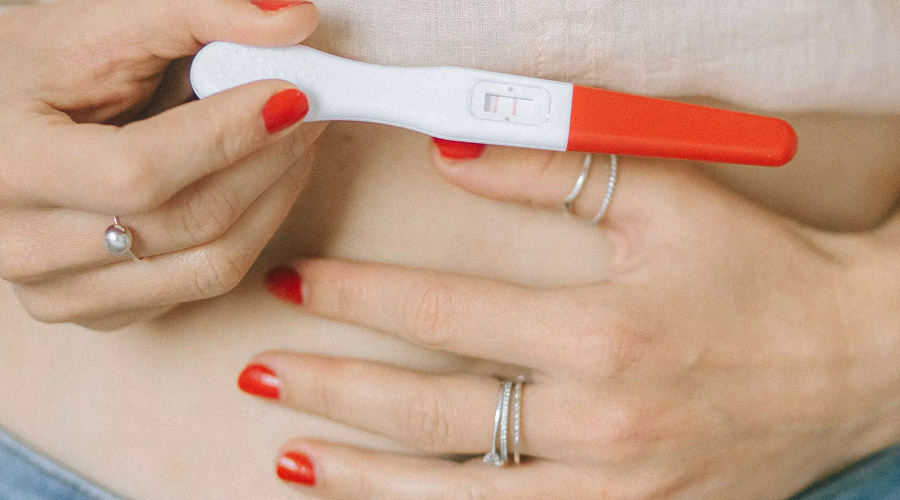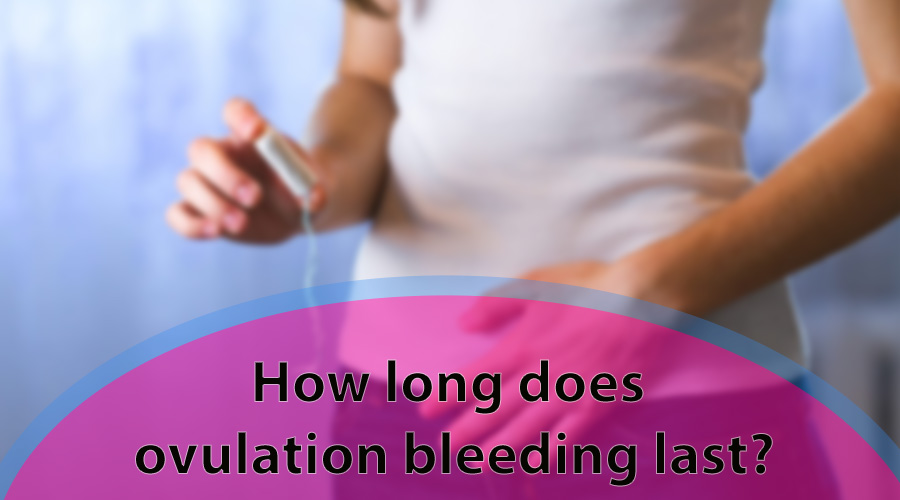If you’re trying to conceive, you may be wondering how long ovulation bleeding lasts. This is a question that many people have, and it’s important to understand the answer. Ovulation bleeding can vary from woman to woman, but typically it only lasts for a day or two. In this blog post, we will discuss how long ovulation bleeding lasts and what you can do to make sure you’re timing intercourse correctly!
Table of Contents
What is ovulation bleeding?
Ovulation bleeding is a common term used to describe the spotting that most regularly menstruating women experience when they ovulate. This spotting is caused by the release of an egg from one of your ovaries, and it can vary in color and intensity.
Some women don’t experience any ovulation bleeding at all, while others may have light spotting for a day or two. Some even experience abnormal uterine bleeding.

Many women experience bleeding may also have higher levels of luteal progesterone and luteinizing hormone around ovulation. Most feel painful periods and pelvic pain.
If you’re trying to conceive, it’s important to understand how your body responds to ovulation so that you can time intercourse correctly.
What causes ovulation bleeding?
As we mentioned, ovulation bleeding is caused by the release of an egg from your ovary. When the ovary releases an egg, it can trigger a small amount of bleeding. This is because the egg is surrounded by a thin layer of tissue called the follicle. As the egg breaks through the follicle, it can cause this tissue to bleed slightly.

Some medications such as breast cancer treatment and hormonal birth control. However, if you have just started taking hormonal birth control, it’s common to experience some spotting in the first three months).
Is ovulation bleeding healthy?
Yes, ovulation bleeding is a perfectly healthy and normal part of your menstrual cycle. Some women worry that they are experiencing implantation bleeding, but this is typically not the case. Implantation bleeding occurs when the fertilized egg implants itself into the lining of the uterus, and it usually happens around six to twelve days after conception.

If you’re experiencing spotting or light bleeding during this time, it’s more likely due to ovulation than implantation.
How long can ovulation bleed last?
Ovulation bleeding can last anywhere from one to two days. As we mentioned, the blood flow can vary from woman to woman, so it’s important to pay attention to your own body. If you’re experiencing more or less bleeding than usual, be sure to mention it to your doctor.

There are a few different ways to tell if you’re ovulating, including changes in cervical mucus and basal body temperature. You may also experience light spotting or cramping during this time. If you’re not sure how to track your ovulation, talk with your doctor about how they recommend you do so.
Spotting between periods: when is it normal?
Many women experience spotting or light vaginal bleeding between periods. This is often caused by hormonal changes, and it’s usually nothing to worry about. If you’re concerned about mid-cycle bleeding or any changes in your menstrual cycle, be sure to talk with your doctor. They can help you figure out what’s causing the bleeding and whether or not it’s normal for you.

If you’re trying to conceive, ovulation bleeding can be an important indicator of when you’re most fertile. Pay attention to how long your ovulation bleeding lasts, and make sure to time intercourse correctly!
Spotting before ovulation
Some women experience spotting a few days before they ovulate. This is known as pre-ovulatory bleeding, and it’s caused by the same hormonal changes that cause ovulation bleeding. If you’re trying to conceive, this can be an important time to have intercourse!
Remember, every woman has different menstrual bleeding patterns, so pay attention to how your body responds to ovulation.
If you have any questions or concerns, be sure to talk with your doctor. They can help you figure out what’s normal for you and how to make sure you’re timing intercourse correctly.
Spotting during ovulation
Many women experience spotting or light bleeding during ovulation. This is caused by the release of an egg from your ovary, and it’s a perfectly normal part of your menstrual cycle. If you’re trying to conceive, be sure to pay attention to how long this bleeding lasts!
Ovulation bleeding can last anywhere from one to two days, so make sure you time intercourse correctly!
If you’re experiencing more or less bleeding than usual, talk with your doctor about what could be causing it. They may recommend that you track your ovulation using a method like basal body temperature or cervical mucus changes. This can help you figure out when you’re most fertile!
Spotting after ovulation
Some women experience spotting or light bleeding after ovulation. This is known as post-ovulatory bleeding, and it’s usually caused by the hormonal changes that occur after ovulation. If you’re not trying to conceive, this isn’t typically a cause for concern.
However, if you’re experiencing heavy or prolonged bleeding after ovulation, be sure to talk with your doctor. They may want to do some tests to figure out what’s causing the bleeding.
If you’re trying to get pregnant, pay attention to how much spotting you’re experiencing after ovulation. Heavy or prolonged bleeding could mean that you’re not conceiving!
What is the color of ovulation bleeding?
Ovulation bleeding is usually red or light pink, and it may be heavier or lighter than your usual period. This shows the blood has mixed with the cervical fluid that increases when ovulation occurs.

If you’re experiencing heavy or prolonged bleeding during ovulation, be sure to talk with your doctor. They may want to do some tests to figure out what’s causing the bleeding.
Can ovulation bleeding be heavy?
Yes, ovulation bleeding can be heavy. If you’re experiencing more or less bleeding than usual, talk with your doctor about what could be causing it.
They may recommend that you track your ovulation using a method like basal body temperature or cervical mucus changes. This can help you figure out when you’re most fertile!
What’s the difference between ovulation spotting and a period?
Ovulation spotting is usually lighter and shorter than a period. Many women experience spotting or light bleeding during ovulation, and it’s caused by the release of an egg from your ovary. If you’re trying to conceive, be sure to pay attention to how long this bleeding lasts!

Ovulation bleeding can last anywhere from one to two days, so make sure you time intercourse correctly!
A period, on the other hand, is a heavier flow of blood that lasts for several days. If you’re not pregnant, your body sheds the lining of your uterus each month. This is known as menstruation, and it’s a normal part of your menstrual cycle.
Is ovulation spotting a sign of pregnancy?
No, ovulation spotting is not a sign of pregnancy. Many women experience spotting or light bleeding during ovulation, and it’s caused by the release of an egg from your ovary. If you’re trying to conceive, be sure to pay attention to how long this bleeding lasts!

If you’re experiencing more or less bleeding than usual, talk with your doctor about what could be causing it. They may recommend that you track your ovulation using a method like basal body temperature or cervical mucus changes. This can help you figure out when you’re most fertile!
Inference
The color and duration of ovulation bleeding can vary from woman to woman. If you’re experiencing spotting or light bleeding during ovulation, be sure to talk with your doctor about how long this bleeding lasts!
They may recommend that you track your ovulation using a method like basal body temperature or cervical mucus changes. This can help you figure out when you’re most fertile!
Thanks for reading! We hope this article helped understand how long does ovulation bleeding last. If you have any questions or concerns, be sure to talk with your doctor. They can help you figure out what’s normal for you and how to make sure you’re timing intercourse correctly.
FAQ
How long is too long for ovulation bleeding?
Average ovulation bleeding is between one to two days. If you’re experiencing heavy or prolonged bleeding during ovulation, be sure to talk with your doctor. They may want to do some tests to figure out what’s causing the bleeding.
Is it normal to bleed for a week during ovulation?
Some women experience light bleeding for a week during ovulation. If you’re experiencing more or less bleeding than usual, talk with your doctor about what could be causing it.
They may recommend that you track your ovulation using a method like basal body temperature or cervical mucus changes. This can help you figure out when you’re most fertile!
How do you know if it's ovulation bleeding?
Ovulation bleeding is usually lighter and shorter than a period. Many women experience spotting or light bleeding during ovulation, and it’s caused by the release of an egg from your ovary. If you’re trying to conceive, be sure to pay attention to how long this bleeding lasts!
What is the color of ovulation blood?
The color of ovulation blood can vary from woman to woman. Some women experience light spotting, while others may have heavier bleeding. If you’re concerned about the color of your bleeding, be sure to talk with your doctor.
They can help you figure out what’s normal for you and how to make sure you’re timing intercourse correctly.
Does ovulation bleeding mean you are pregnant?
No, ovulation bleeding is not a sign of pregnancy. Many women experience spotting or light bleeding during ovulation, and it’s caused by the release of an egg from your ovary.
